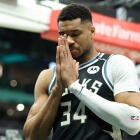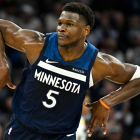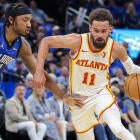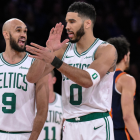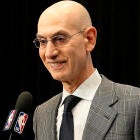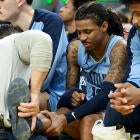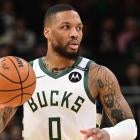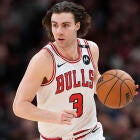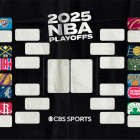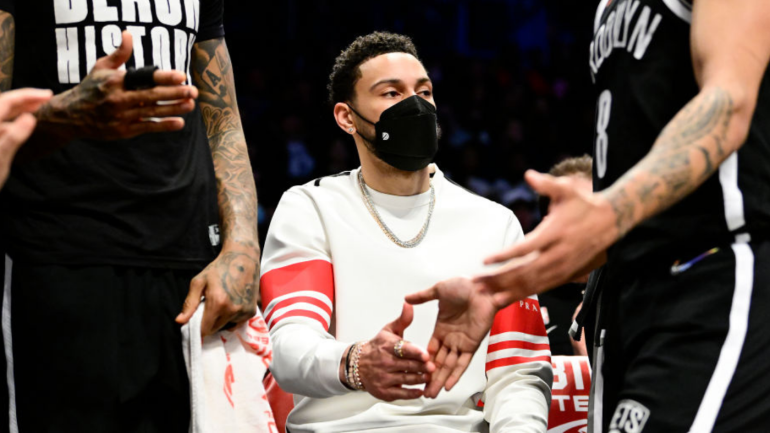
Since Ben Simmons was traded to the Brooklyn Nets last month, there has been a lot of ink spilled about how he's an ideal fit for his new franchise. And that's true, to an extent. The Nets could use a boost when it comes to defense, playmaking and rebounding, and Simmons will help in all of those areas.
Simmons is arguably the most versatile defender in the entire NBA, and one of, if not the singular best, perimeter defenders. He's also an elite playmaker (especially in transition), and a very solid rebounder with the size and athleticism to make an impact on both the offensive and defensive glass. He's averaged 8.1 rebounds and 7.7 assists per game over the course of his career, in addition to adding 15.9 points per performance.
But, just because Simmons will plug some obvious holes for the Nets, that doesn't necessarily mean that he'll be a flawless fit in Brooklyn. One of the biggest issues with Simmons' fit in Philly was the difficulty he had playing alongside All-Star center Joel Embiid. Simmons is at his best with the ball in his hands, and his inability to space the floor with a shot has sapped his effectiveness when he's playing off of the ball to this point in his career.
In today's NBA, when you have an elite player -- like Embiid, or Kevin Durant -- you want to surround that player with shooters in order to maximize their operating space. Simmons doesn't do that, and that's why he was a less than ideal fit next to Embiid. The sheer talent between Embiid and Simmons allowed the Sixers to band-aid this issue and find some regular-season success. However, the problem became more evident during postseason play when transition opportunities are harder to come by and teams are forced to generate more production from their halfcourt offense.
It's been in the halfcourt in the playoffs where opposing defenses have had success in nullifying Simmons' skillset and, at times, even turning him into a liability. The Sixers obviously wanted the ball in Embiid's hands in clutch postseason situations -- like the Nets will want it in Durant's or Irving's -- and since defenses didn't have to worry about Simmons as a shooter, they'd cheat off of him in order to apply additional pressure on Embiid. This made life more difficult for Embiid, and in turn, the Sixers as a whole.
In Philadelphia, Simmons had trouble playing alongside one ball-dominant player in Embiid. In Brooklyn, he'll be playing with two in Durant and Kyrie Irving. What evidence is there to support the idea that the same issue won't plague Simmons with the Nets? In other words, in crunch time of a playoff game, what is going to prevent opposing defenses from shading off of Simmons in order to apply more pressure on Durant or Irving?
Unless Simmons has expanded his range since the last time we saw him on the floor, he's going to continue to be largely a non-threat without the ball in his hands -- and he's going to have to spend large stretches without the ball in Brooklyn. In terms of usage rate, Embiid and Durant are very similar players and then you have to throw Irving, another high-usage guy, into the mix. Sure, Durant and Irving are both solid catch-and-shoot players, but that's not where either is at their best.
Simmons might not be relied upon to score quite as much with the Nets as he was with the Sixers, as many have pointed out. But while not having to produce points is one thing, being an active liability on offense is another, and that's what Simmons can become if his defender leaves him to apply pressure elsewhere. Given his reputation, defenses will assuredly leave him open on the perimeter until he can prove that they shouldn't, and this could work to make things tougher for Durant, just like it did with Embiid.
There are ways to boost Simmons' effectiveness when he's playing off the ball. Using him as a screener in screen-and-roll scenarios is one way while positioning him near the basket in the dunker spot is another. The latter option works best if he's serving as a small-ball center because it would get too crowded around the rim if he were playing alongside another traditional big man. Both of those are situational solutions, though, as Simmons' ceiling as a player will continue to be capped until he adds a semi-respectable shot.
Ultimately, it will be up to Nets coach Steve Nash to figure out the best ways to maximize Simmons' skills around Durant and Irving while simultaneously minimizing the impact of his deficiencies. There's a high potential for success, but it's far from guaranteed. All of the positive things that Simmons will bring to the Nets, he brought to the Sixers too, and it still didn't work out. Perhaps it will be different this time.
![[object Object] Logo](https://sportshub.cbsistatic.com/i/2020/04/22/e9ceb731-8b3f-4c60-98fe-090ab66a2997/screen-shot-2020-04-22-at-11-04-56-am.png)










